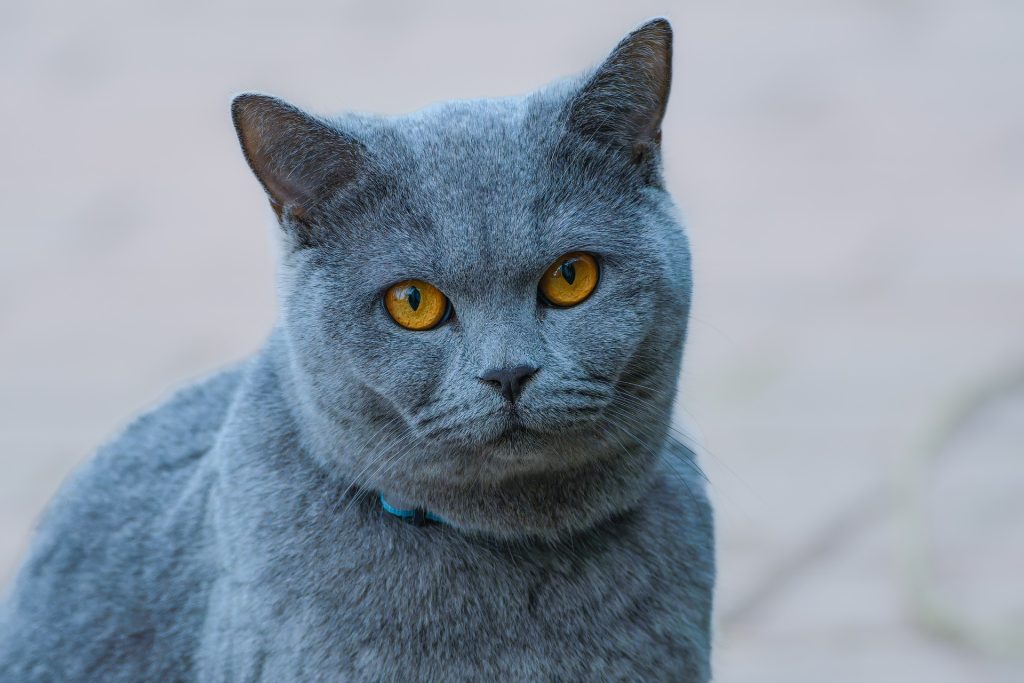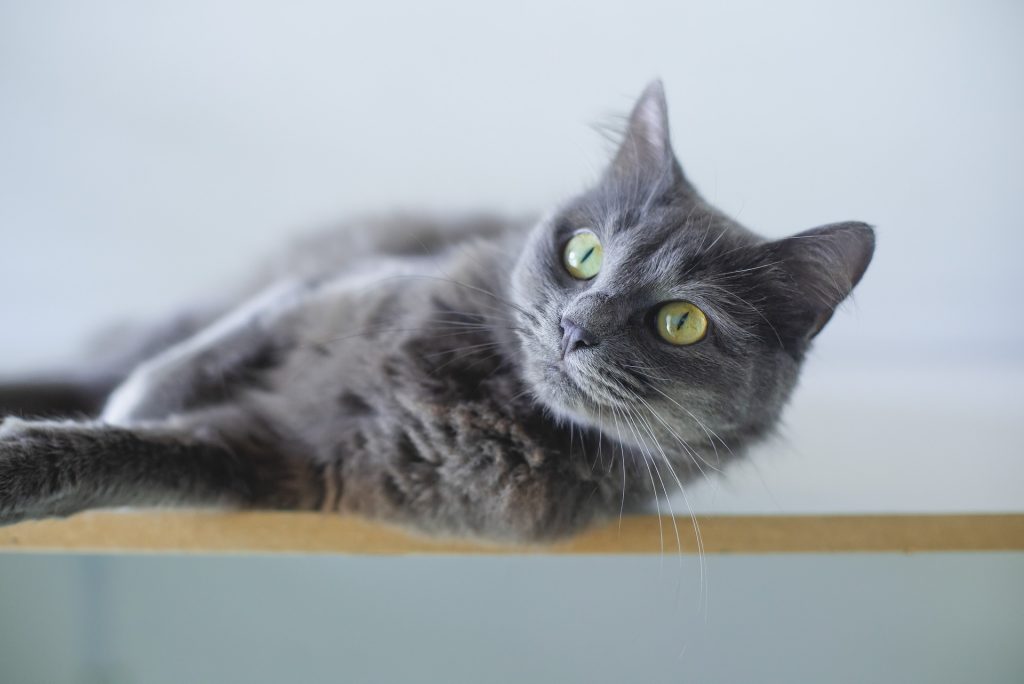Table of Contents
As a mom to my furry felines, I often get asked if kittens can eat adult cat food, especially when they try to sneak a bite from their older sibling’s bowl. The answer isn’t as straightforward as a simple ‘yes’ or ‘no.’ While kittens can eat solid food, there’s a significant difference between the nutritional needs of a growing kitten and an adult cat. Kittens require a calorie surplus and specific nutrients for their rapid growth, which are not always present in food formulated for adult cats. It’s like how a toddler needs different nutrition than a grown-up. Understanding this will help us ensure that our little ones grow up healthy and strong.
Kittens typically begin to nibble on wet or dry food as they gradually transition away from mother’s milk around the first few weeks of life. However, this doesn’t mean that food for adult cats is the best choice for them. Just like human babies have different dietary needs than adults, kittens have life stages that require tailored nutrition, and it’s crucial to provide them with the essential nutrients required for optimal growth during this formative period.
Introduction to Kitten Nutrition
Kittens’ bodies are incredible machines, and to support their healthy growth, they need a diet rich in specific nutrients. Proteins, fats, and amino acids like taurine and arachidonic acid are the building blocks that fuel their energetic play and contribute to the development of a strong immune system. Unlike adult cats, kittens need these nutrients in higher quantities to keep up with their growth spurts. Think of it as laying the foundation for a lifetime of health – getting it right from the start is essential.
When it comes to feeding my little ones, I ensure that their diet is packed with all the right stuff. This means offering them specially formulated kitten foods that provide the higher energy content and essential fatty acids like arachidonic acid, which are crucial for their development. It’s like packing a lunchbox with extra love and care to make sure they have everything they need to thrive throughout their adventurous day.
The Growth Imperative: Nutrients Kittens Need
Now, let’s get into the nitty-gritty of what makes up a good kitten diet. As obligate carnivores, kittens and adult cats rely on meat to meet their nutritional requirements. Growing kittens, in particular, need a rich source of animal protein to form muscle, skin, fur, and all the other bits and pieces that make up their adorable selves. These proteins also play a crucial role in their immune system, acting as the frontline defense against any nasties.
Choosing the right wet food and dry food for kittens isn’t just about the protein content, though. Kitten foods across the United States are designed to meet the energy requirements of growing kittens, ensuring they have enough fuel to explore, play, and learn. It’s like a constant energy drink, but in the form of cat and kitten chow. Always look for kitten foods that cater to these needs, so your little explorer gets the best start in life.
Decoding Cat Food Labels: Adult vs Kitten Formulas
Strolling down the pet food aisle can be overwhelming with all the choices available. The key to choosing the right food formula lies in understanding the nutritional information on the labels. Kitten formulas are designed to support rapid growth and development, with higher levels of protein, fat, and calories than adult cat food. It’s like comparing a high-powered sports car to a reliable sedan – both serve their purpose, but one has that extra oomph needed for performance.
When comparing labels, you’ll notice that food for adult cats might not have the concentrated nutrients that kitten formulas boast. These nutrients are essential for your kitten’s growth and should be a priority when selecting their diet. It’s like ensuring your child eats their veggies for their vitamins – it’s all about what’s best for them at their current life stage.

Nutritional Analysis: Kitten vs Adult Cat Food
When it comes to feeding our feline companions, understanding the nutritional differences between kitten and adult cat food is vital. Kitten food is designed to support the intense growth and energy demands of their early life stages. It’s packed with a higher calorie count, more protein, and essential nutrients that are crucial for their development.
Key Ingredients and Their Impact on Kitten Development
As a cat mom, I know firsthand the importance of feeding my little ones the right food to support their growth. A kitten’s diet must be rich in high-quality proteins to fuel their rapid development. Proteins are the building blocks for strong muscles, and for kittens, that means including plenty of animal-based sources like chicken, fish, or turkey in their diet. But it’s not just about protein; fats are also crucial. They provide energy and help kittens absorb essential vitamins and minerals. The right kitten food will have these key ingredients in abundance, ensuring that my fur babies grow up healthy and robust.
Another important factor is taurine, an amino acid that’s essential for heart and eye health. Unlike adult cats, kittens can’t make enough taurine on their own and must get it from their food. Also, DHA, an omega-3 fatty acid found in mother’s milk, is vital for brain development, so I always look for it on the label. By choosing kitten food that’s formulated with these key ingredients, I’m giving my kittens the best start in life, setting the stage for a future of vitality and wellness.
Understanding the Balance of Calcium and Phosphorus
Calcium and phosphorus are like the dynamic duo for kitten bone health. The correct balance of these minerals is crucial for developing strong bones and teeth. I’ve learned that kitten food should have a higher ratio of calcium to phosphorus to support their skeletal growth. The Association of American Feed Control Officials (AAFCO) recommends a minimum of 1% calcium and a matching level of phosphorus on a dry matter basis for optimal development. Ensuring that my kittens get the right balance in their diet is a priority for their long-term health.
Adult cat food may not have the same elevated levels of these minerals as kitten formulas do, which is why it’s not ideal for my growing babies. They need that extra boost during these formative months. If their diet isn’t properly balanced, it could lead to developmental issues, and I certainly don’t want to see that happen. So I stick to the kitten-specific formulas that maintain the precise nutritional balance my little ones need to thrive.
The Selection Criteria for High-Quality Cat Food
Selecting the right cat food is crucial for my kitten’s health and well-being. High-quality kitten food should contain a balance of proteins, fats, vitamins, and minerals in the correct proportions. As a responsible cat mom, I look for products that not only help my kitten grow up strong but also prevent nutritional deficiencies. This means scrutinizing labels for real meat as the primary ingredient and ensuring the product meets the nutritional levels established by the AAFCO.
Additionally, I consider the long-term health benefits of the food I choose. Quality cat food can help with natural weight regulation and support a strong immune response, which is essential for my kittens as they grow. And it’s not just about growth; I also need to think about preventing health issues like urinary tract infections, obesity, pancreatitis, and heart disease. A well-chosen diet can be a powerful tool in keeping these problems at bay.
Criteria for Choosing the Best Cat Food for Growth
Choosing the best food for my kittens’ growth involves looking for specific criteria on the label. I always ensure the food I select doesn’t just meet, but exceeds, the minimum nutritional requirements to avoid any chance of nutritional deficiency. This includes a high protein content from quality sources like chicken or fish, which is essential for healthy growth. Then, there’s the balance of essential vitamins and minerals, which supports everything from bone health to immune system function.
Moreover, preventing common health issues is a priority for me, and the right food can make all the difference. A diet that’s formulated to support urinary tract health can help fend off urinary tract infections, while controlled mineral levels can reduce the risk of kidney disease. And since heart disease is a concern for many cat owners, I make sure the food I choose supports cardiovascular health with the right blend of nutrients.
Evaluating Brands: What to Look for in Kitten Nutrition
When it’s time to evaluate different food brands for my kittens, I focus on those that promote healthy growth. The list of ingredients should include high-quality proteins like chicken or fish, which are crucial for building strong muscles. I also look for fats, especially omega-3 and omega-6 fatty acids, which play a significant role in skin and coat health. A brand that prioritizes these ingredients is likely to support my kittens’ overall growth and vitality.
It’s not only about what’s included but also what’s avoided. I steer clear of brands with fillers or artificial additives that offer little nutritional value. Instead, I opt for those with a holistic approach to kitten nutrition, ensuring every meal contributes positively to my kittens’ development. The ideal brand will have a solid reputation for quality and a commitment to using ingredients that serve a purpose in promoting the health and wellness of growing kittens.
Practical Tips for Cat Guardians
As a cat guardian, I’ve learned that the key to a healthy kitten starts with the quality of their food. Choosing a brand that’s specifically formulated for kittens is essential, as they need more protein, fat, vitamins, and minerals than adult cats. Real meat should be the first ingredient listed, providing quality protein sources like chicken or beef. And I always look for the AAFCO logo, which tells me the food is complete and balanced for my kitten’s specific life stage.
Offering a mix of kibble and wet food can also benefit my kittens. Wet cat food provides hydration and can be easier for young ones to eat, while kibble helps keep their teeth clean. Feeding my kittens a variety of textures can also prevent them from becoming picky eaters as they grow. By following these practical tips, I can ensure my kittens get the best nutrition possible, supporting their health and happiness.
Preventing Kittens from Eating Adult Cat Food
As someone who’s cared for multiple kittens, I’ve found that preventing them from eating adult cat food requires a bit of strategy. First, I keep the adult cat food out of reach, perhaps in a separate room or on a higher shelf. Monitoring meal times closely ensures my kittens don’t sneak a bite of the wrong food. I also make their own kitten food appealing by choosing high-quality options that are tasty and nutritious, which helps keep them interested in their own meals.
When it’s time to switch from kitten food to adult food, I do so gradually over a 7- to 10-day period to avoid upsetting their stomachs. This gradual transition allows their digestive systems to adapt smoothly. And as much as I love my little ones, I resist the urge to give in to those big, pleading eyes asking for a taste of adult cat food. Consistency in their diet is key for their growth and development, and I’m committed to providing just that.
Recognizing and Managing Food Allergies in Kittens
As a cat mom, I’ve learned that just like humans, kittens can develop food allergies, and it’s crucial to recognize the signs early on. Symptoms may include itchy skin, digestive upset, or even respiratory issues. If you suspect your kitten has an allergy, it’s essential to consult a veterinarian. They might suggest an elimination diet, where you’ll feed your kitten a simple diet and gradually reintroduce foods to pinpoint the culprit. Remember, it’s always better to catch these allergies early to manage them effectively and keep your furry little one comfortable and healthy.
Once an allergy is identified, managing it becomes a top priority. This might involve switching to hypoallergenic kitten foods or even homemade meals under veterinary guidance. Some kittens might have reactions to dry food, so wet options could be a better choice. Always be vigilant about reading labels, as even some dry cat foods can sneak in common allergens. And, if you’re incorporating calcium supplements, ensure they’re safe for kittens with dietary sensitivities. It’s all about finding the right balance to ensure your kitten thrives.
Expert Insights on Feline Dietary Care
Expert insights are invaluable when it comes to feline dietary care. Professionals emphasize the importance of a balanced diet that meets all of a kitten’s nutritional requirements. For instance, taurine is a crucial amino acid found in meat, and it’s essential for heart and eye health. Experts also warn against certain trends like vegan cat diets, which don’t align with a cat’s carnivorous needs. It’s fascinating to learn that each nutrient plays a specific role, from supporting growth to preventing diseases like feline diabetes and inflammatory bowel disease.
When picking out kitten foods, I always look for high protein content and the right vitamin and mineral balance. Experts suggest that a variety of protein sources in a kitten diet is key for comprehensive nutrition. And when it comes to growing kittens, the diet must support their rapid development. That’s why I choose brands that prioritize animal-derived proteins and avoid those that offer a one-size-fits-all approach. After all, a tailored diet ensures that my little felines grow up to be strong and healthy adults.
Veterinary Advice on Feeding Kittens
When I first got my Siamese kittens, I was adamant about following veterinary advice for their feeding. Vets emphasize that kittens have unique nutritional requirements that differ significantly from adult cats. A correctly balanced kitten diet is rich in animal proteins, which are fundamental for developing muscles, skin, fur, nails, and internal organs. Vets have taught me that not only does protein support physical growth but also cellular repair and a healthy immune system. After all, kittens are little bundles of energy and need the right fuel to support their rapid growth!
Moreover, vets recommend specific kitten foods that are formulated to provide all essential amino acids, vitamins, and minerals. These kitten foods are designed to meet the intense energy demands of growing kittens. I’ve learned to pay special attention to the labels, ensuring that the foods I choose support their development stages. By following expert guidance, I can rest assured that my kittens will receive the nutrients they need to grow into healthy, happy cats.
The Science Behind Kitten Food Formulations
The science that goes into kitten food formulations is truly fascinating. It’s all about getting the moisture content just right for young kittens, who need more water in their diet than adults do. This is because kittens are prone to dehydration, and moist foods help maintain their hydration levels. Formulas are crafted to include a precise balance of proteins, fats, and carbohydrates, along with essential vitamins and minerals, to promote healthy growth and development. I always marvel at the expertise that goes into creating these balanced diets that cater to every aspect of a kitten’s growth needs.
Understanding the science behind these formulations has made me appreciate the importance of following feeding guidelines, like transitioning to adult cat food around a kitten’s first birthday. This transition is done gradually over several days to prevent gastric discomfort and ensure a smooth dietary shift. I follow the recommended schedule, starting with a mix of mostly kitten food and gradually increasing the proportion of adult cat food. It’s a methodical process that ensures my kittens’ digestive systems adjust properly, setting them up for a lifetime of good health.

Conclusion: Fostering Healthy Eating Habits from the Start
As a cat mom, I’ve learned that just like ensuring kittens have their litter boxes clean and providing them with interactive toys for mental stimulation, starting them off with the right nutrition is crucial. It’s all about setting the stage for a lifetime of health and happiness, no matter the cat breed. Ensuring they get the nutrients they need early on means they’ll grow up strong, avoiding health issues that can come from inadequate diets. Think of it like using the right-sized nail clippers for their tiny claws – using the right tool for the job makes all the difference.
So, while it might seem easier to feed all your cats the same food, remember that kittens have unique needs. By being mindful from the start and choosing food that’s tailored for their growth, you’re helping your little ones develop into healthy, vibrant adult cats. And if they happen to sneak a bite of adult cat food? Don’t fret too much. Just keep steering them back to their own bowl, filled with the kitten-specific nourishment they need. This way, you’re not just their guardian; you’re their lifelong friend, guiding them towards a future of wellbeing.

Hi, I’m Zoey, a devoted mom to two charming Siamese cats. My passion lies in assisting fellow pet owners in providing optimal care for their cats. On CatsEuphoria, I share practical tips and relatable stories, inviting you to join me in appreciating the authentic bond between humans and our beloved feline companions.




